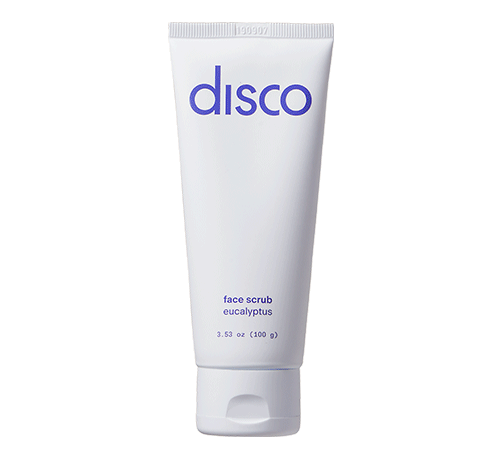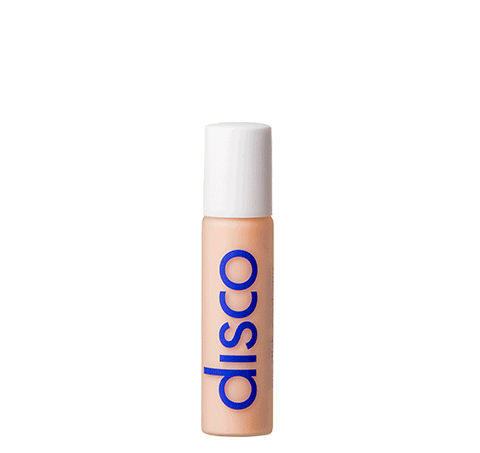How do you pick your deodorant? If it involves removing the cap and taking a sniff, you’re like most guys. Who can resist the manly scent of tree bark and pine needles? Chances are, you’ve never looked at your pit stick’s ingredient label.
The problem is, you use deodorant on a daily basis, sometimes numerous times a day. Swipe after swipe, you’re ensuring your underarms smell like a true woodsman and not a guy who stress-sweats at his desk all day.
The bottom line: any product we use on our bodies on a regular basis has the potential to help or harm us. Be aware; there could be danger in those pine trees, partner.
Let’s have a serious conversation about your deodorant ingredients and find out what’s inside, whether it’s safe, and what you can do about it. We’ll cover the hot topic of aluminum in deodorant and discuss why avoiding it is a good idea.
Why Do We Wear Deodorant?
Really, why? There had to be some point in history when it became offensive to sweat. Spoiler alert: there was. We wondered when labeling sweat a “bad” thing happened, so we did a little digging.
Why We Sweat
We sweat because we are overheated. Dogs pant, humans sweat. Sweating happens as a natural reaction to your body feeling too warm. You have sweat glands all over your body, and when you warm up, they release fluids to keep you cool.
There are two different types of sweat glands that produce sweat, which includes:
- Eccrine sweat glands. These are the most numerous types of sweat glands, located mostly in your armpits, the palms of your hands, soles of your feet, your forehead, and your cheeks. These sweat glands release a thin, clear, odorless fluid when you perspire.
- Apocrine sweat glands. These sweat glands are less numerous and found only in your pits and groin. When you sweat, these babies release a thicker, odorless fluid but with a catch: when this fluid comes in contact with bacteria on your skin, it creates body odor.
Your body is covered with bacteria that help your skin function properly. But the side effect of some bacteria is how it reacts negatively with sweat and can produce odor.
Clearly, the issue isn’t that sweat odor smells bad; it doesn’t.
Sweat is, after all, mostly made up of water, some carbs, and a little salt. Sweat is also a necessary and important way our body cools itself. The issue is bacteria on the skin.
Nevertheless, the pioneers of early deodorant manufacture focused on the effect and not the cause, and developed products to combat body odor that was, at best, incredibly terrifying.
Deodorant 101
Deodorant wasn’t a thing until the early 1900s. Before this time, people generally accepted sweating as part of life. It wasn’t until a clever marketing campaign suggested that sweating was a social faux pas that would cause people to disassociate with you.
Since that time, we’ve been obsessed with any product that will eliminate sweat production in our underarms and make us smell socially acceptable. Early formulas were bright red and even boasted acid in the ingredients list, yet people continued to buy and use it.
Thankfully, formulas changed, and we now basically have two options for pit protection: deodorant and antiperspirant.
Deodorant vs. Antiperspirant
We usually just call it deodorant, but there are two very different products for your underarm excretions, and they have different functions.
Deodorant
Deodorant works to reduce your body odor, not prevent you from sweating (because, you know, sweating is normal). Deodorants contain ingredients that help prevent the development of bacteria on your skin, reduce it, or change it to interact with your sweat and become offensive.
Deodorants may contain alcohol, which lowers the pH level of your skin, making it more acidic. Acidic skin doesn’t attract bacterial growth as much as skin that is more alkaline.
Deodorants may also contain perfume, unspecified fragrances, or other ingredients to help make body odor.
Antiperspirant
Antiperspirants are just what they sound like, products that are designed to make you stop sweating. They usually accomplish this by using an aluminum-based ingredient that blocks your pores so that sweat isn’t able to be released.
Wondering if it’s healthy to put something on your body that blocks your ability to sweat? Yeah, us too. Here’s what you need to know about aluminum in your antiperspirant.
Is Aluminum in Deodorant Bad?
Aluminum works by blocking the pores so you can’t sweat, but it also helps eliminate odor by inhibiting bacterial growth that could cause body odor.
Sounds like an excellent solution for what advertising made a huge problem, right? Wrong.
The problem is, aluminum isn’t safe for our bodies, especially in a product we apply to a sensitive area every single day.
Side Effects of Aluminum in Deodorant
There’s been a ton of research on the possibility that using an aluminum-based antiperspirant might be doing us more harm than good. Here’s what we know.
- Aluminum in antiperspirants has been linked to Alzheimer’s, a progressive form of dementia. Although research is still ongoing, the evidence was enough to make many users call it halts on antiperspirant.
- Aluminum stops you from sweating. Man, we promise, this isn’t a good thing. Unless you have been diagnosed with the condition that causes excessive sweating, the fact is, you probably don’t sweat nearly as much as you think you do.
- Aluminum in your antiperspirant can be hard on your kidneys. So hard, in fact, that manufacturers have to issue a warning on the label for people with kidney problems (but you’ve probably never noticed that either).
Aluminum isn’t just bad for your body, and it can also stain your clothes. Aluminum builds on your skin and collects in your tissues, and you really don’t need it in the first place.
Your body is designed to sweat, and it only does it when it needs to. If you want to tackle body odor, there are better options and ways to stay feeling confident without plastering heavy metal on your underarms.
Natural Deodorants
Natural deodorants work by keeping you comfortable and smelling clean without disrupting your body's ability to work like it’s supposed to. Natural deodorants also contain safe ingredients and won’t live rent-free in your body.
Disco’s aluminum-free, natural deodorant contains everything you need to help stay fresh and clean without harmful chemicals that could disrupt your hormones or risk your health.
Here’s how it works:
- Tea tree oil. This plant-based essential oil has been used for centuries for its antibacterial properties. Tea tree oil helps neutralize the bacteria on your skin that can cause body odor.
- Eucalyptus. Natural eucalyptus oil is a potent odor-fighting ingredient that isn’t overpowering. That means no more pine trees for you, my friend. The clean, fresh smell of eucalyptus is doing more than just making you smell good. It also helps fight odor-causing microorganisms.
-
Aloe. Known to help take care of the skin in your armpits (yeah, there’s skin there), aloe is often overlooked. However, some deodorants can cause irritation on the skin, leading to ingrown hairs and (get ready for it) even dandruff.
Aloe helps soothe irritation and keep your skin moisturized while also protecting your skin against environmental pollutants.
Best of all, our deodorant is safe enough to use every day, as many times a day as you want. It’s great for sensitive skin, and won’t cause irritation. Our deodorant will never leave you with pit stains or a filmy feeling on your underarms so that you can wear it comfortably and confidently.
The Bottom Line
Aluminum has no place in your pits, man. It’s linked with too many bad side effects and simply isn’t necessary for maintaining your cool and eliminating body odor.
A better option is a natural deodorant, like Disco’s. Our deodorant takes care of making sure you smell good so you can take care of business without the use of harsh chemicals.
Sources:
Understanding Sweating|SweatHelp.org
How Advertisers Convinced Americans They Smelled Bad | History|Smithsonian
The association between aluminum-containing products and Alzheimer's disease | PubMed







